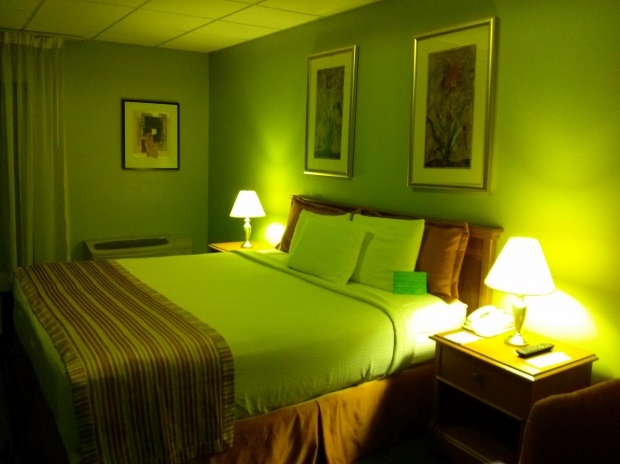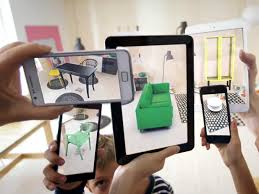These travel accommodations have also been using augmented reality to an increasing degree.
The hospitality industry has been among those that have been the most willing to embrace the use of smartphones by consumers and have been implementing geolocation technology through beacons, as well as augmented reality features, more than many other consumer facing industries.
In fact, hotels that haven’t implemented a mobile friendly strategy are already starting to fall behind.
While making it possible to book online over mobile devices has nearly become an industry standard, there are two other forms of mobile tech that are being adopted by hotels even before they are being seen in the majority of other places: geolocation technology and augmented reality. These are both emerging forms of tech that are barely seen in most other industries but hoteliers are starting to use them to help them to keep ahead of the competition – or at least stop them from falling behind.
Geolocation technology through beacons are becoming especially popular with some hotel brands.
 These use low energy Bluetooth connections to provide added hyper local, relevant services to guests with smartphones and tablets. The beacons can be placed on physical objects or they can be fenced into entire physical locations in order to push the right information to mobile devices at the most appropriate times.
These use low energy Bluetooth connections to provide added hyper local, relevant services to guests with smartphones and tablets. The beacons can be placed on physical objects or they can be fenced into entire physical locations in order to push the right information to mobile devices at the most appropriate times.
On the other hand, augmented reality can help to enhance services and features for hotel guests, making certain processes more appealing. The use of this type of tech is becoming increasingly important as Millennials become the largest consumer segment with disposable income. It is estimated that by the year 2020, they will be spending an annual $4.1 trillion.
Furthermore, among Millennials, about 52 percent are well above average when it comes to technology adoption. This means that when appealing to that particular demographic, it can be invaluable to reach them through the mobile devices that they use for many of their everyday tasks. This is the adult demographic most likely to look to smartphones and tablets in order to complete a broad spectrum of tasks, meaning that hotels can add draw by interacting with those consumers over channels such as those that are geolocation technology based.
The VR and AR technology spot will be launched to let staff, students and industry partners use the tech.
Australia’s Deakin University has now announced its intentions to launch what will be an Interactive Digital Centre Hub, located in Melbourne, which will focus on virtual and augmented reality technologies.
The hub is expected to open at some point in the first half of 2016, though a specific date hasn’t been released.
The idea behind this hub is to provide a place where industry partners, students and staff members can come together and get their hands on some of the very latest in virtual and augmented reality technology. The hub is being opened in partnership with EON Reality. In total, more than $10 million (USD) has been invested into the creation of this new facility. Once it is up and running it will be the very first center that is dedicated exclusively to VR and AR tech within the greater Asian region.
Deakin University chose to open its augmented reality hub as it already boasts a strong research group.
 With a strong set of researchers already in place among its staff and students, Deakin University decided it would be a good investment to provide a location in which VR and AR technology could be studied. This way, it will become easier for these researchers to work with the industry itself, and it will also open up a world of new forms of educational courses and programs that focus on this type of mobile technology.
With a strong set of researchers already in place among its staff and students, Deakin University decided it would be a good investment to provide a location in which VR and AR technology could be studied. This way, it will become easier for these researchers to work with the industry itself, and it will also open up a world of new forms of educational courses and programs that focus on this type of mobile technology.
Among the courses that are already slated to start along with the hub includes a new Bachelor of IT Virtual Reality Major, in addition to a Virtual Reality Graduate Diploma and a Masters in IT specialization in Virtual Reality. Those new offerings are set to begin as of July 2016.
Among the hub features that are attracting the most attention include a multi-user high res immersive 3D dome. That feature will be used primarily for outreach programs.
Professor Trevor Day, the pro vice chancellor of the Faculty of Science, Engineering and Built Environment at Deakin, described the benefit of the virtual and augmented reality hub, saying “Deakin University’s commitment to innovation will take another leap forward thanks to this exciting new partnership with EON Reality Inc and perfectly matches the Federal Government’s new Innovation Strategy.”
 These use low energy Bluetooth connections to provide added hyper local, relevant services to guests with smartphones and tablets. The beacons can be placed on physical objects or they can be fenced into entire physical locations in order to push the right information to mobile devices at the most appropriate times.
These use low energy Bluetooth connections to provide added hyper local, relevant services to guests with smartphones and tablets. The beacons can be placed on physical objects or they can be fenced into entire physical locations in order to push the right information to mobile devices at the most appropriate times.
 With a strong set of researchers already in place among its staff and students, Deakin University decided it would be a good investment to provide a location in which VR and AR technology could be studied. This way, it will become easier for these researchers to work with the industry itself, and it will also open up a world of new forms of educational courses and programs that focus on this type of mobile technology.
With a strong set of researchers already in place among its staff and students, Deakin University decided it would be a good investment to provide a location in which VR and AR technology could be studied. This way, it will become easier for these researchers to work with the industry itself, and it will also open up a world of new forms of educational courses and programs that focus on this type of mobile technology.